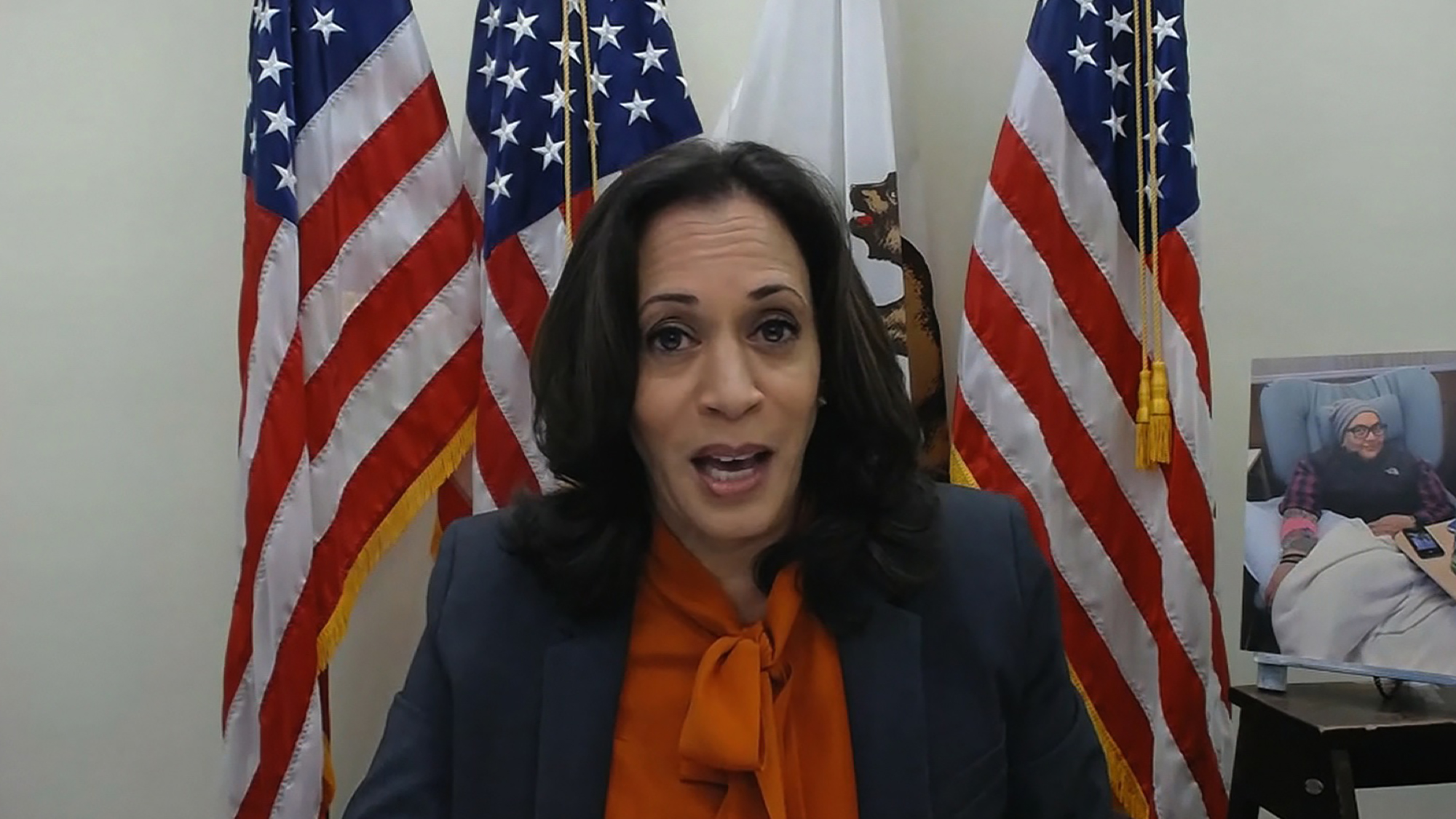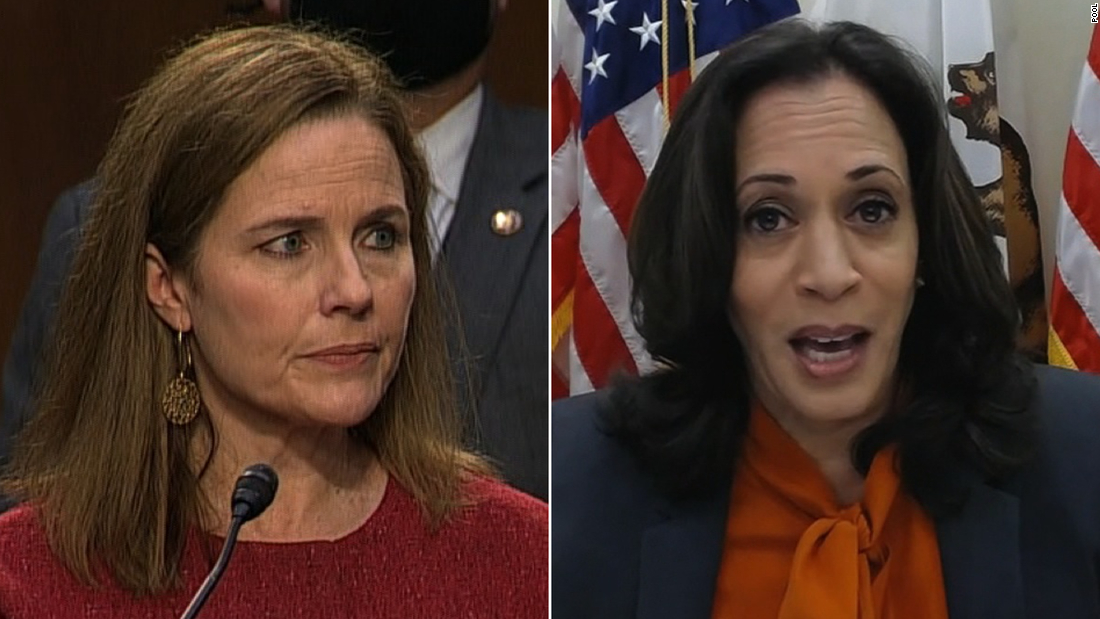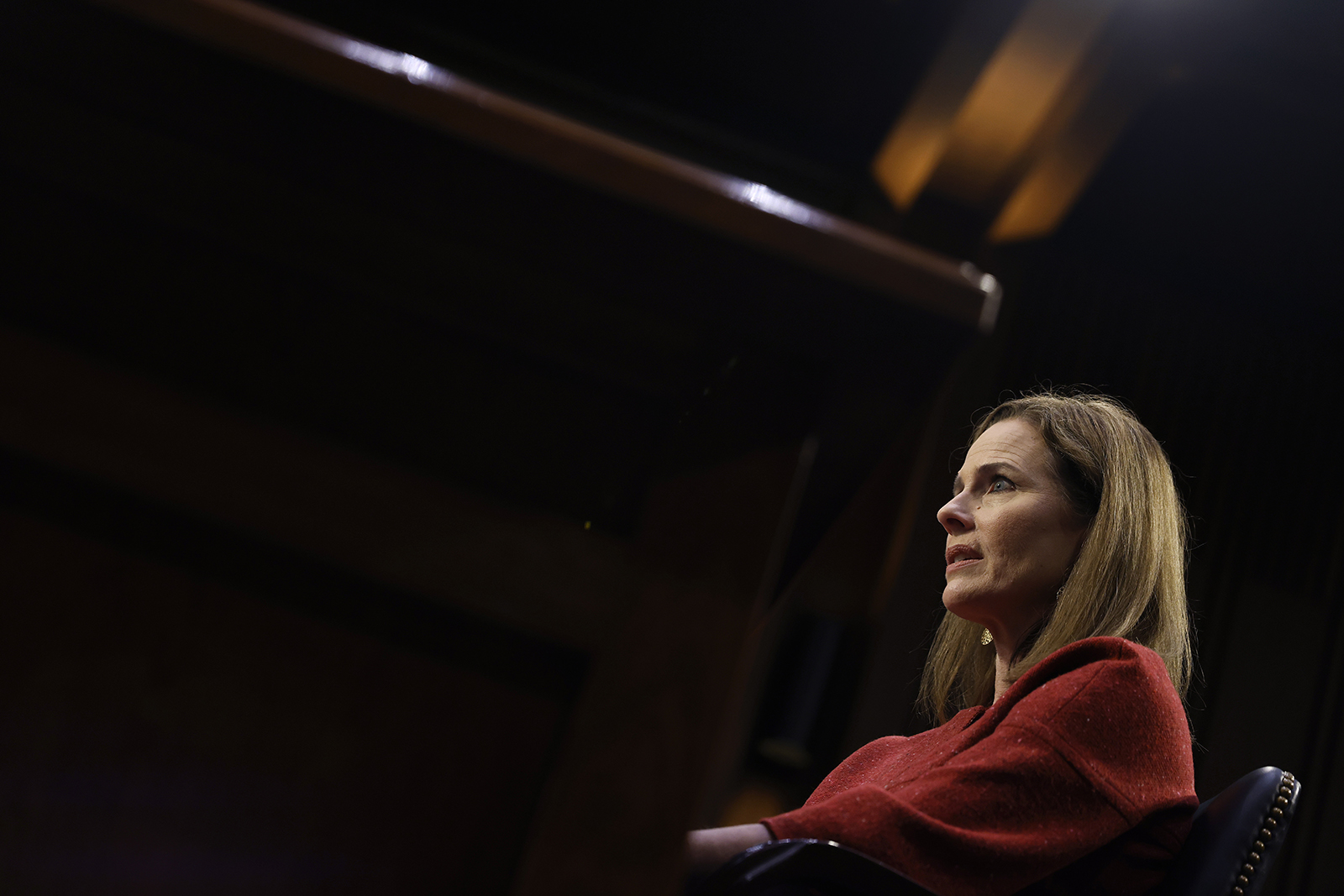The second day of Supreme Court nominee Amy Coney Barrett's confirmation hearing has wrapped.
Barrett faced questions for more than 11 hours from the Senate Judiciary Committee, and declined to preview how she would rule on potential cases, seeking instead to portray herself as an independent judge without an agenda.
If you're just reading in, here are some takeaways from the first day of questioning:
- On abortion and Roe v. Wade: Barrett repeatedly declined to give her views on high-profile, contentious issues like abortion rights and the constitutionality of the Affordable Care Act. She was repeatedly asked about her views of Roe v. Wade, the 1973 landmark case establishing a constitutional right to abortion, and Planned Parenthood v. Casey, which reaffirmed its central holding in 1992.
- The Affordable Care Act: Barrett also rejected Democratic senators' questions on the Affordable Care Act, citing Ruth Bader Ginsburg's response to answering hypothetical questions during her hearing in 1993. "No hints, no previews, no forecasts," said Barrett. Sen. Kamala Harris stuck to her Democratic colleagues' approach, connecting her nomination to the future of the health care law and telling Barrett that the American people are afraid the Affordable Care Act will be "destroyed in the middle of a pandemic."
- On a possible election case: Barrett did not commit to recusing herself from a potential Trump v. Biden case. The issue was raised when Vermont Democratic Sen. Patrick Leahy asked Barrett if she would commit to recusing herself from any case related to the November elections. She declined.
- On the nomination process: Barrett gave a surprisingly candid response to a question from Sen. Lindsey Graham on how it felt to be nominated for the Supreme Court of the United States. Barrett said that she tried "a media blackout for the sake of my mental health," but is "aware of a lot of caricatures that are floating around" of her and her family.
Read more about today's hearing here.


